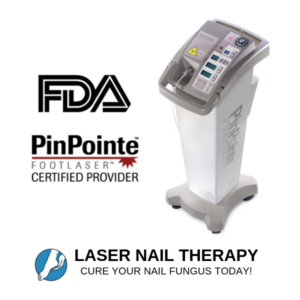Unseen Nail Fungus: Understanding the Hidden Infection
When it comes to nail fungus, the symptoms aren’t always obvious. Nobody wants to experience the unpleasant effects of thick, discolored, or brittle nails caused by nail fungus. If you’ve been researching toenail fungus, you may already be aware that the initial signs of infection are subtle discolorations or whitening of the nail surface. Recognizing these signs puts you ahead in preventing a severe infection. However, you may wonder if it’s possible to have nail fungus without any visible indications. The answer is yes, and here’s an explanation of invisible nail fungus. Toenail Fungus Treatment in Bensalem
Understanding How Nail Fungus Develops
A nail fungus infection begins with a small amount of fungus infiltrating the nail bed. Over time, the fungus grows and occupies more space underneath the nail. Since fungal spores are microscopic, they often go unnoticed until they multiply significantly. Only when these spores have grown for a considerable period will visible changes occur in the affected nail. Consequently, invisible nail fungus can be present beneath your nail without displaying any signs of infection.
The significance of this fact is twofold. Firstly, it highlights the importance of maintaining proper shoe and foot hygiene, even if you or those in close contact don’t exhibit any visible fungus signs. Regularly washing and thoroughly drying your feet, as well as wearing clean and breathable socks and shoes, can help prevent the spread of invisible nail fungus. Secondly, the potential existence of invisible nail fungus affects the approach to treatment. If you have a visible fungal infection on one toe, it’s likely that some invisible nail fungus spores are present on your other toes. Therefore, it’s crucial to treat all nails on each affected foot to minimize the risk of reinfection. Our doctors employ the PinPointe laser for fungus treatment, following this principle.

Common Symptoms to Watch For
While invisible nail fungus may not exhibit visible signs, here are some of the typical symptoms associated with toenail fungus:
- Discoloration: Yellowing is the most common discoloration, but it doesn’t necessarily affect the entire nail. Other variations include white streaks on the nail, and in severe cases, the nail can turn brown or black.
- Brittleness of toenails: Infected nails become brittle, prone to cracking or breaking. This can lead to discomfort and difficulty in performing daily activities.
- Thickening of toenails: Many individuals experience nail thickening, making it difficult to trim and maintain them. The thickened nails can become uncomfortable, causing pressure or pain when wearing shoes.
- Nail traumas: Nail injuries can create an entry point for fungal spores, increasing the risk of developing toenail fungus. It’s important to practice proper foot care and avoid situations that may cause nail damage.
- Smelly toenails: In some cases, debris trapped in thickened toenails can cause an unpleasant odor. This can be embarrassing and affect self-confidence.
If you’re experiencing any of these symptoms, it’s advisable to schedule a free consultation with our podiatrist in the Bensalem office. They can determine whether you have a toenail fungus infection and recommend the best treatment option for you.
Preventing Toenail Fungus
Prevention is key when it comes to toenail fungus. To avoid developing an infection, consider the following precautions, especially in warm and moist environments:
- Always wear shoes in public spaces, including swimming pools, hot tubs, gyms, locker rooms, saunas, and indoor activity facilities. This helps minimize direct contact with surfaces that may harbor fungal spores.
- Avoid wearing closed-toe shoes for extended periods, particularly in hot weather, as they create an ideal environment for toenail fungus to thrive. Opt for open-toe shoes or sandals when possible to promote air circulation and keep your feet dry.
- Be cautious when visiting nail salons. Ensure they maintain cleanliness and sanitation standards, including disinfecting tools between each client. It’s also a good idea to bring your own nail tools for added hygiene.
- Do not share nail clippers or other nail tools to prevent the spread of toenail fungus. Regularly clean and disinfect your own nail clippers and other nail tools using appropriate disinfectants.
By following these tips, you can significantly reduce the risk of developing a toenail fungus infection and maintain healthy nails.
Available Treatment Options
If you do find yourself with a toenail fungus infection, there are several treatment options available. Here are some of the common approaches:
- Topical treatments: Over-the-counter creams like tolnaftate and clotrimazole can help prevent fungal infections. However, they are not effective for treating an active infection and have a success rate of less than 10%. These creams are most useful as preventive measures or for mild cases of toenail fungus.
- Oral pills: Medications like Lamisil (terbinafine) are commonly prescribed for more severe cases of toenail fungus. However, they come with potential side effects, including liver toxicity. Routine liver testing is necessary during the course of treatment, and the average cure rate is only around 60%.
- Laser treatment: The most advanced option for nail fungus treatment is laser therapy. Laser treatment offers a non-invasive and effective approach to eliminating toenail fungus. Various lasers are available, with differing success rates and FDA approvals. The PinPointe laser treatment, approved by the FDA, is a highly effective option, typically requiring only one session and offering no downtime or pain. It targets the fungus directly, penetrating the nail and killing the infection at its source.
For Toenail Fungus Treatment in Bensalem, we highly recommend the PinPointe Laser as it boasts the highest cure rate in the market. It has no side effects, allows for an immediate return to daily activities, and involves a painless procedure.
Toenail Fungus Treatment in Bensalem

Toenail fungus can be a persistent and bothersome condition, and sometimes the signs of infection are not immediately visible. Understanding the concept of invisible nail fungus is crucial in preventing its spread and addressing the infection effectively. By maintaining good foot hygiene, recognizing the symptoms of toenail fungus, and seeking appropriate treatment, you can regain healthy and beautiful nails. If you suspect you may have toenail fungus or have any concerns, reach out to our team at 800-672-0625. Our experienced podiatrists can provide expert guidance and recommend the most suitable treatment option for your specific situation. Don’t let unseen nail fungus go untreated—take the necessary steps to address the infection and restore the health of your nails.



